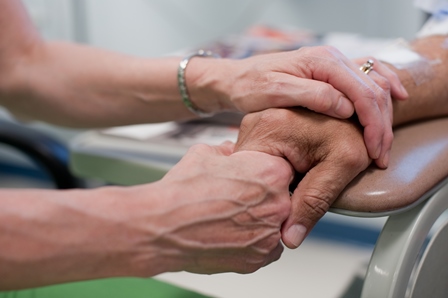Many older adults receiving home care do not receive any palliative home care before death, suggesting we need better methods to identify people who need this support, according to new research in CMAJ (Canadian Medical Association Journal).
“Palliative care is an essential component of a holistic, comprehensive and patient-centred approach to care for all people with a life-limiting illness from the time of diagnosis with the disease,” said Dr. Amy Hsu, investigator at the Bruyère Research Institute and faculty in the Department of Family Medicine at the University of Ottawa, senior author of the study.
Starting palliative care in the months before death is linked to a more positive end-of-life experience, including improved quality of life, less anxiety, better pain and symptom management, and potentially less aggressive care at the end of life. However, Canadian estimates indicate that only 15 per cent of people receive palliative care at home in the last year of life.
The study, conducted by Ottawa researchers, looked at data on almost a quarter million community-dwelling older adults with at least one interRAI Home Care assessment between August 2018 and September 2019. Using a tool called RESPECT, which was developed to help identify frail older adults’ need for palliative care, the research team predicted the risk of dying within 6 months of an assessment and looked at what health services people received.
They found that only about half of the individuals who had an estimated life expectancy of less than three months had received formal palliative home care. Those who had received palliative home care were people who had been flagged by physicians as having a terminal prognosis.
“Prediction algorithms, like RESPECT, can improve how we provide care to frail individuals. They can help clinicians recognize who needs care and when,” said Dr. Doug Manuel, a family medicine physician and senior scientist at the Ottawa Hospital Research Institute, one of the study’s coauthors.
“These tools and data can also support earlier conversations about patients’ preferences, goals, and wishes as they approach the end of life, and inform advance care planning,” adds Dr. Hsu.
“A substantial proportion of clients likely in their last few months to years of life do not receive any palliative care and continue to be admitted to hospitals and long-term care homes. Most Canadians want to die at home or in a home-like environment, surrounded by their loved ones. When individuals are not supported to die in the community, their end-of-life care experiences may be misaligned with their preferences,” said Ms. Maya Murmann, research associate at the Bruyère Research Institute, who is supporting the integration of RESPECT in various health settings.
The RESPECT calculator is available at ProjectBigLife.ca. The researchers are working with partners in home, community care, and long-term care to implement RESPECT in their settings.
“Estimated mortality risk and use of palliative care services among home care clients during the last 6 months of life: a retrospective cohort study” is published February 26, 2024.




